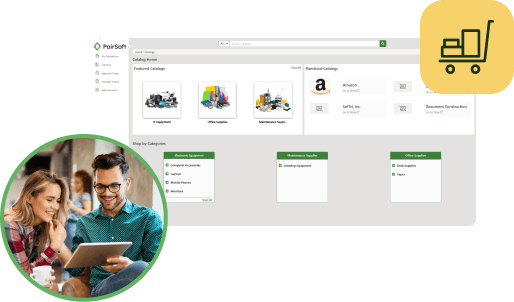
PairSoft
The strongest AP automation, document management, procurement, and fundraising automation platform for mid-market and enterprise companies with integrations to your ERP system.
View all posts by PairSoftPairSoft

Give yourself full visibility by implementing an automated procurement solution that will help you control costs, ensure you’re getting the best purchasing value, and help you easily implement policy, approval, and routing changes.
Have a Spend Management Question you’d like answered? Fill out the form at the bottom of this page and our team will get back to you right away. We may even add your question/answer to our FAQ page!
PairSoft is an intuitive web-based and mobile spend management solution for mid-market and enterprise organizations.
We are trusted by over 131,000 global, national, and local brands for powerful capabilities, intuitive features, the option for cloud-based, hosted, or on-premise deployment, and the capacity to be a stand-alone solution or seamless out-of-the-box integrated extension of Microsoft Dynamics (GP, NAV, SL, AX), Dynamics 365 Business Central, Sage ERP (100, 100c, 300, 300c, 500), Sage Intacct, Blackbaud (Financial Edge, NXT), Acumatica, and NetSuite.
Procurement is the act of obtaining or buying goods and services.
A purchase order is a commercial document issued by a buyer to a seller, indicating types, quantities, terms, and agreed prices for products or services.
Enterprise grade describes products that integrate into an infrastructure with a minimum of complexity and are robust and scalable across a large organization.
Dashboards often provide at-a-glance views of KPIs (key performance indicators) relevant to a particular objective or business process.
A change order is work that is added to or deleted from the original scope of work of a contract or purchase order.
Committed costs are the costs which have not yet been paid, but an agreement, such as a purchase order or contract, has been made so that the cost will be incurred.
cXML (commerce eXtensible Markup Language) is a programming language designed to standardize the communications between procurement applications and eCommerce suppliers.
A requisition is a documented way to request an action or item for delivery by a certain date, department, or individual.
A guided buying catalog is an internal catalog of products and/or services containing items of your choosing organized by vendor, department, and type of item, among others.
Approval rules are rules the company establishes to cover its purchasing activity. Rules may cover such things as approval dollar limits, routing, individual approvers, escalation conditions, and so on.
Position-based approvals are a quick way to establish an approval routing process based upon the initiating user’s role in the company. For example, you may establish an approval routing that applies to all AP clerks and a separate routing for inventory buyers.
A check request is a request for vendor payment that does not initiate from a purchase order.
Variance tolerance refers to the accepted variance of quantity or cost when there is a difference between what was ordered, received, and invoiced.
A packing slip/packing list is a list of what is included in a shipment, typically provided by the vendor.
Accruals are the values of goods or services that an organization has received, but where the supplier has not yet sent an invoice. If the invoice has not arrived by the end of the accounting period, then they enter a journal to account for this cost.
A PunchOut site is an eCommerce website that lets your buyers make purchases from a supplier’s website accessed directly through your own eProcurement software. It was named for the “punching out” action taken by the buyer organization as they exit their company’s system and link to the suppliers’ web-based catalogs.

Vendor self-service allows vendors to view, add, and maintain select information which may include purchase orders, invoices, bid responses, and contact information, among others.

A vendor invoice portal is another term for a vendor self-service portal.

Software-as-a-Service is a method of software delivery that allows data to be accessed from any device with an internet connection and web browser.

A request for quote (RFQ) is a type of procurement solicitation in which a company asks outside vendors to submit a quote for the completion of a specific task or project.

Optical Character Recognition (OCR) technology scans a paper or electronic document, usually an invoice, and turns it into metadata that can be used to populate fields in a database.

Invoice matching is the process of the accounts payable department matching a vendor invoice, PO, and product receipt information.
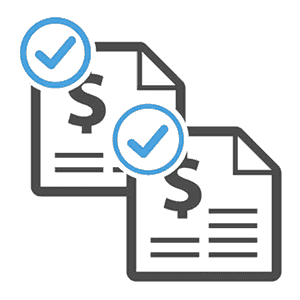
Two-way matching refers to matching the price/quantity information on the invoice to the price/quantity information on the purchase order.
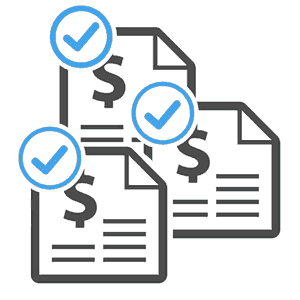
Three-way matching refers to matching the price/quantity information on the invoice to the price/quantity information on the purchase order. You then, also, match the quantity information on the invoice to the quantity information on the product receipts associated with the invoice.

Role-based approvals are a quick way to establish an approval routing process based upon the initiating user’s role in the company. For example, you may establish an approval routing that applies to all AP clerks and a separate routing for inventory buyers.

Ad-hoc means formed, arranged, or done for one particular purpose only. It comes from Latin, meaning “for this.” When applied to the approval process, it refers to a one-time change to the normal approval process.
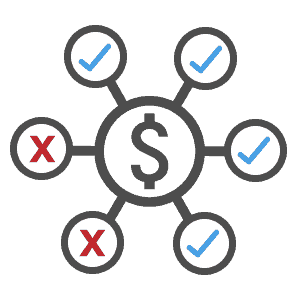
Approval rules are rules the company establishes to cover its purchasing activity. Rules may cover such things as approval dollar limits, routing, individual approvers, escalation conditions, and so on.

Simply stated, multi-currency transactions are those that involve any currency other than US dollars.

Direct spend refers to purchases of goods and services that are directly incorporated into a product being manufactured.

Indirect spend refers to purchases of goods and services that are not directly incorporated into a product being manufactured.

Ad-Hoc means formed, arranged, or done for one particular purpose only. It comes from Latin, meaning “for this.” When applied to the approval process, it refers to a one-time change to the normal approval process.

Approval rules are rules the company establishes to cover its purchasing activity. Rules may cover such things as approval dollar limits, routing, individual approvers, escalation conditions, etc.

The Form 1099-MISC, also simply called 1099, is a tax form that the IRS uses to track miscellaneous income. Specifically, it tracks payments made to an individual or unincorporated business so that their income can be accounted for at the end of each year.
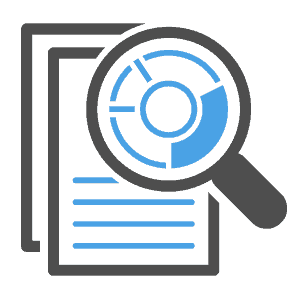
An audit trail (also called an audit log) is a security-relevant chronological record that provides evidence of the sequence of activities that have affected at any time a specific operation, procedure, or event.

GL distributions are used to define how an expense amount will be accounted for, such as how the expense, asset, tax, or charges will be encumbered on the purchase order or accounted for on the product receipt or vendor invoice.

An audit trail refers to the documented flow of a transaction.

Materials management is a core supply chain function and includes supply chain planning and supply chain execution capabilities.
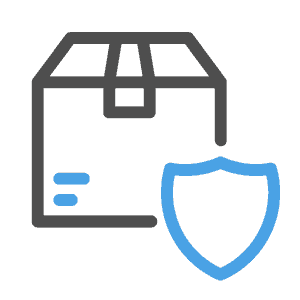
Inventory management is the supervision of non-capitalized assets (inventory) and stock items.

Inventory replenishment, otherwise known as stock replenishment, refers to the process of inventory moving from reserve storage to primary storage, then onto picking locations.

A non-PO invoice is an invoice used to make a payment to a supplier when a PO is not required/used. Payment for a non-PO invoice typically is initiated with a check request.

Open Financial Exchange (OFX) is a unified specification format for the electronic exchange of financial data through the Internet, and between or among financial institutions, businesses, and customers.

A nonrecoverable tax is an indirect tax paid on the purchase of goods or services. These taxes are accrued and added to the purchase order price of the goods or services.

A nonrecoverable tax is an indirect tax paid on the purchase of goods or services. Taxes can be claimed as a credit against the taxes that are payable by the taxpayer.

Intercompany accounting is the process of recording financial transactions between different legal entities within the same parent company.

Unmanaged spend is spending that is not under the direct control of the procurement department.
Talk to an expert today to uncover how your team’s procurement stacks up against the top performers in your sector.
